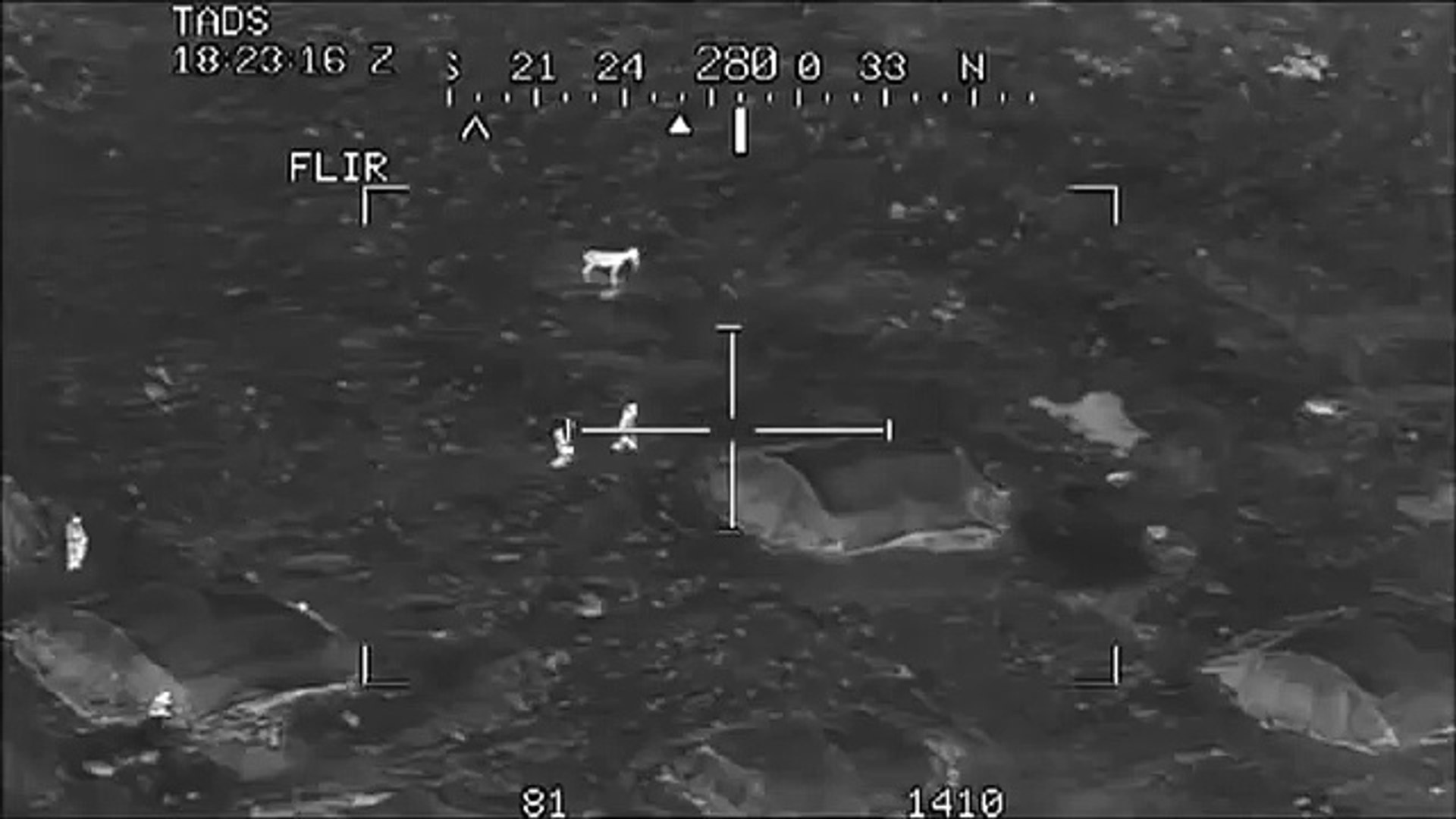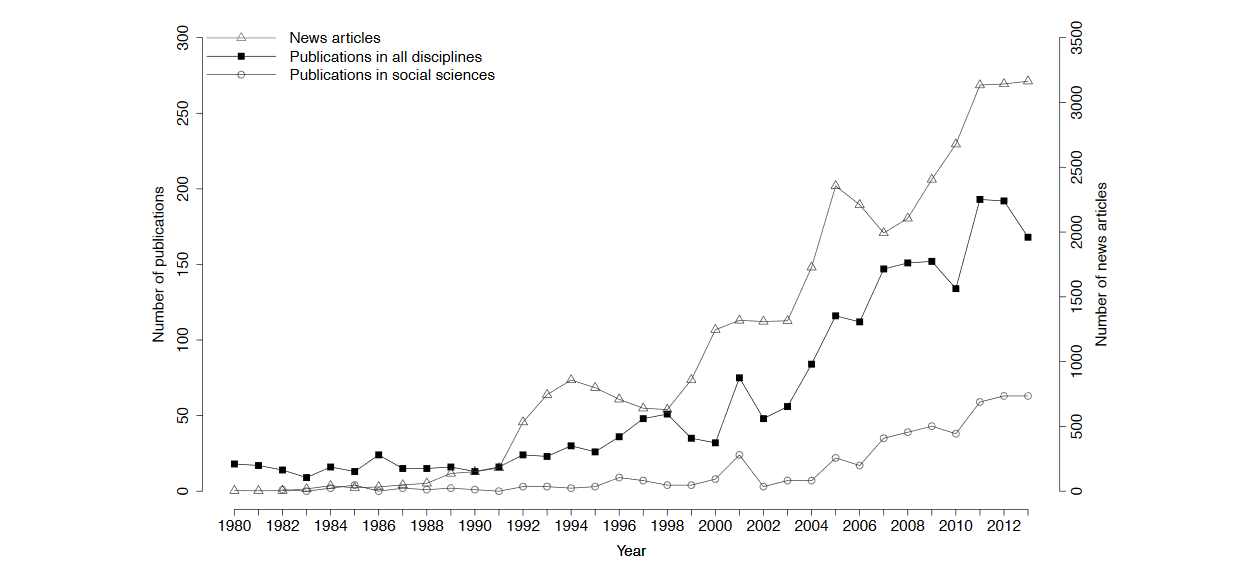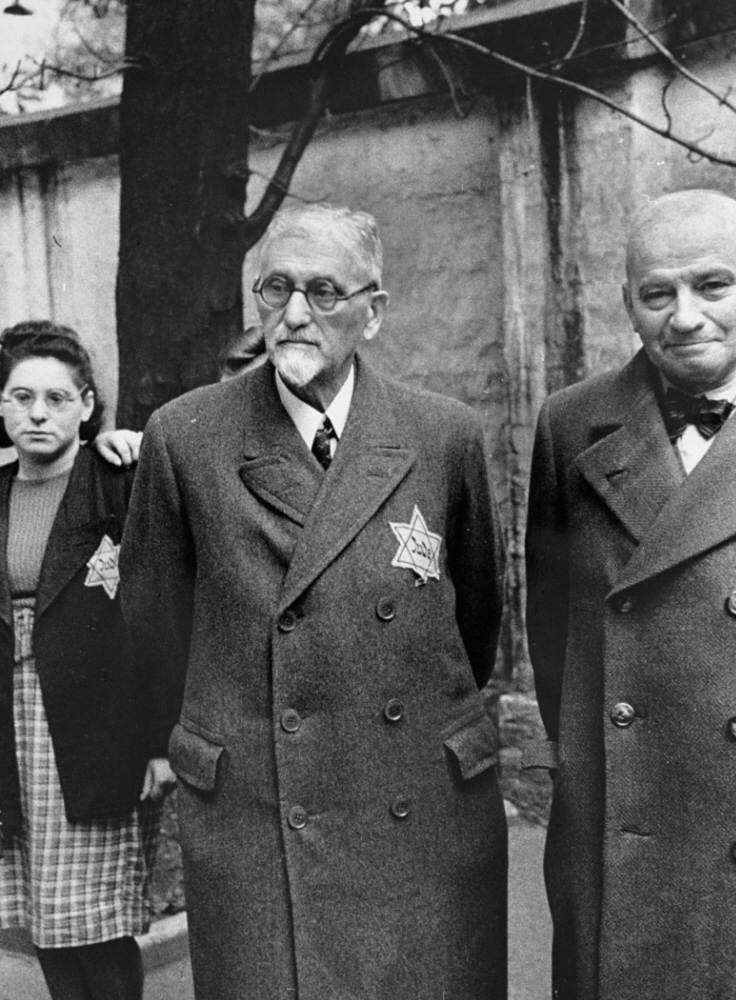class: center, middle, inverse, title-slide # War, Technology & Innovation ## Autonomous Recognition Systems and Future Warfare ### Jack McDonald ### 2020-02-10 --- class: inverse # Lecture Outline .pull-left[ - The strategic implications of automated and autonomous recognition systems - Ethics and emerging technologies - Data ethics in armed conflict ] .pull-right[ ] ??? 4.5 Implications: Autonomous Recognition Systems and Future Warfare This lecture highlights three directions of future research from the same project. The point of the final lecture in this series is that it also provides each student some time to discuss how they see their own research fitting in with existing research, and how it could be taken forwards in radically different directions. This is an important thing to consider for longer research projects, and may help when it comes to your dissertation. In essence, after all is said and your analysis is done, how do you conclude a research project in a productive manner? At graduate level, it’s not about saying “I’m right, because x, y, and z”, it’s about knowing your material so thoroughly that you are able to make constructive connections to wider research, or discern interesting pathways for future research. The three things I will be talking about in this lecture are the strategic implications of automated and autonomous recognition systems, ethics and emerging technologies, and data ethics in armed conflict. My hope is that you will see how each of these could naturally flow from the project we have covered in this series. Discussion question: Do ethical objections to a technology stand any chance against perceived military utility? Research discussion question: How have your ideas for your research project evolved so far this term? Reading: Bostrom, Nick, and Eliezer Yudkowsky. “The Ethics of Artificial Intelligence.” In The Cambridge Handbook of Artificial Intelligence, edited by Keith Frankish and William M. Ramsey. Cambridge University Press, (2014). Lodge, Julia. “The Dark Side of the Moon: Accountability, Ethics and New Biometrics.” In Second Generation Biometrics: The Ethical, Legal and Social Context, edited by Emilio Mordini and Dimitros Tzovaras. Springer Science & Business Media, (2012). asd --- class: inverse # Small Group Discussion .question[How have your ideas for your research project evolved so far this term?] ??? --- class: inverse # Strategy and Technology ??? --- # Intangible Weapons (Cyber) .left-column[  ] .right-column[ > Eyewitness accounts from individuals within the impacted units reported seeing an unmanned aerial vehicle (UAV) used in the area prior to one attack, underscoring the need for precise locational data for these particular strikes and introducing the possibility that the Android malware served to support the reconnaissance role of traditional battlefield assets. Crowdstrike Global Intelligence Team, _Use of Fancy Bear Android Malware in Tracking of Ukrainian Field Artillery Units_ ] ??? --- # Recognition Systems and Nuclear Deterrence .pull-left[  ] .pull-right[ .medium[ > AI enables the development of novel platforms to collect intelligence and attack nuclear systems. Although AI has limitations, other, non-AI capabilities mitigate AI’s limitations regarding information processing. This means the potential for AI-based systems to aid second-strike platform identification should not be ignored. Zachary Kallenborn, _AI Risks to Nuclear Deterrence Are Real_ ] ] ??? https://warontherocks.com/2019/10/ai-risks-to-nuclear-deterrence-are-real/ --- # Recognition Systems and Conventional War .pull-left[ .picblock[   ] ] .pull-right[ .small[ > The idea of automatic target recognition often conjures up visions of a completely general system that is able to classify all manner of different vehicle types in the most difficult of clutter environments. > It is important to recognise that an ATR system does not have to address the most difficult scenarios to provide valuable military capability. Indeed, operational radar ATR systems already exist that have solved some of the problems lying on this continuum of ATR difficulty. David Blacknell and Hugh Griffiths, _Future Challenges_ ] ] ??? --- # Recognition Systems and Irregular Warfare .pull-left[ .medium[ > State agents have no interest - nor should they - in describing an entire social reality, and more than the scientific forester has an interest in describing the ecology of a forest in detail. Their abstractions and simplifications are disciplined by a small number of objectives, and untill the nineteenth century the most prominent of these were typically taxation, political control, and conscription. James C. Scott, _Seeing Like a State_ ] ] .pull-right[ .picblock[   ] ] ??? --- class: inverse # Small Group Discussion .question[Do ethical objections to a technology stand any chance against perceived military utility?] ??? --- class: inverse # Ethics and Emerging technologies ??? --- # What is an Emerging Technology? .pull-left[ > Increasing policy interest in emerging technologies, however, must be set against a literature where no consensus has emerged as to what qualifies atechnology to be emergent. Daniele Rotolo, Diana Hicks, and Ben R. Martin, _What Is an Emerging Technology?_ ] .pull-right[  - radical novelty - relatively fast growth - coherence - prominent impact - uncertainty and ambiguity ] ??? --- # The Ethics of Research .pull-left[ .small[ > What is known today as genetic engineering really has no beginning apart from previous biomedical research. However, if it were possible to pinpoint the events which mark the birth of the technology, they would probably be certain experiments carried on at Stanford University in the early 1970s. Researchers in the departments of biochemistry and medicine were pursuing separate avenues of research, yet these avenues would soon converge to produce a new technology. John E. Barkstrom, _Recombinant DNA and the Regulation of Biotechnology_ ] ] .pull-right[ .small[ > The meeting's organizers decided not to address the ethical issues surrounding genetic alteration but to stick to safety issues they felt they could address as scientists. After much haggling, the group settled on a set of safety guidelines that involved working with disabled bacteria that could not survive outside the lab. The guidelines not only allowed the research to resume but also helped persuade Congress that legislative restrictions were not needed—that scientists could govern themselves. Marcia Barinaga, _Asilomar Revisited_ ] ] ??? --- # Technological Ambiguity .left-column[  ] .right-column[ > I don't think we've even seen the tip of the iceberg. I think the potential of what the internet is going to do to society, both good and bad, is unimaginable. I think we're actually on the cusp of something exhilarating and terrifying. > But it's just a tool though, isn't it? > No it's not. No it's an alien life form. David Bowie, _Newsnight Interview in 1999_ ] ??? https://www.youtube.com/watch?v=LaHcOs7mhfU --- # Biometric Recognition Systems .left-column[   ] .right-column[ > What distinguishes all of the biometric projects of the post-colonial world is their explicit goal to provide bureaucratic and financial services to an illiterate population... Whatever the similarities and connections between biometrics and documentary bureaucracy, it is important to notice that biometric technologies are fundamentally-indeed ontologically-antithetical to writing. Keith Breckenridge, _Biometric State_ ] ??? --- class: inverse # Data Ethics in Armed Conflict ??? --- # Digital Infrastructure and War .pull-left[  ] .pull-right[  ] ??? --- # Dataveillance and Identification .pull-left[  ] .pull-right[ .medium[ > If you are a military leader whose lieutenants recommend bombing a compound that might house enemy soldiers, you have an obligation to investigate — before bombing it — whether the compound really does house enemy soldiers,and whether it houses innocent civilians as well. Holly M. Smith, _The Subjective Moral Duty to Inform Oneself Prior to Acting_ ] ] ??? --- # Other Data Generators .pull-left[  ] .pull-right[ .medium[ > For months, as part of its deconfliction program for the Syrian war, the United Nations has been sharing the GPS coordinates of health care facilities in rebel-held territory with the Russian government. The aim was to ensure Russia and its Syrian allies do not hit them by mistake. > The system is not working. Indeed, it seems to be achieving the opposite of its ostensible goal. Anchal Vohra, _The U.N. Helps Syria Bomb the Opposition_ ] ] ??? --- # Open Sourcing War > We lost our first colleague in Raqqa because we were communicating through Facebook. We decided to be far more careful and got training on the use of encryption methods. Nevertheless, we lost still more friends, colleagues, and family members. They were arrested, tortured, executed, sometimes beheaded, both in Syria and Turkey. Still, our only weapon to fight ISIS was through information and the Internet. Abdalaziz Alhamza, _Raqqa is Being Slaughtered Silently_ ??? --- class: inverse # Questions? .pull-left[Do you have any questions about the research essay assessment? Is anything unclear?]